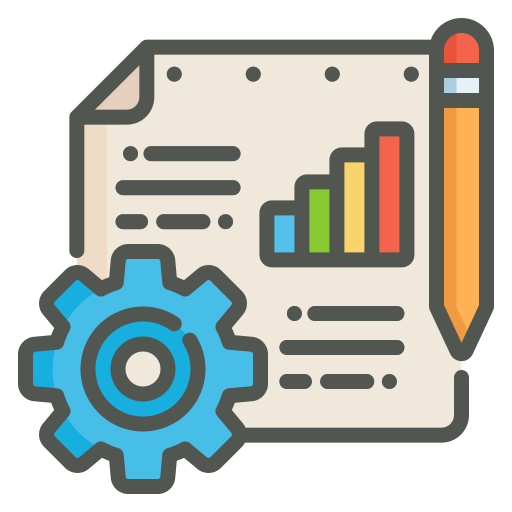Abstract :
The phrase “How AI is Revolutionizing Drug Discovery: A Study on Pfizer and Moderna” suggests a research or analysis focused on how artificial intelligence (AI) is transforming the process of drug discovery, with a specific focus on the pharmaceutical companies Pfizer and Moderna.
Artificial Intelligence (AI) is transforming the pharmaceutical industry by accelerating drug and vaccine development, reducing research time, and improving accuracy.
This paper explores how AI is being utilized by Pfizer and Moderna in their respective
approaches to drug discovery. Pfizer leverages AI for clinical trial analysis, while Moderna employs AI for mRNA modeling. The study also addresses challenges such as data privacy, regulatory approval, and AI model reliability. Additionally, a mini-project is proposed to
engage students in analyzing medical datasets to predict drug effectiveness. The findings highlight the potential of AI to revolutionize drug discovery while emphasizing the need for robust frameworks to address ethical and technical challenges.
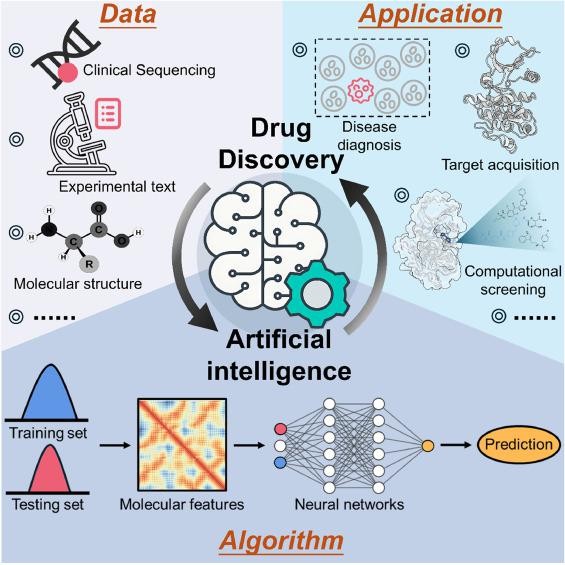
Introduction :
The pharmaceutical industry is undergoing a paradigm shift, driven by the integration of Artificial Intelligence (AI) into drug discovery and development. Traditional drug discovery is a time-consuming and costly process, often taking 10–15 years and costing
billions of dollars to bring a single drug to market. The success rate is notoriously low, with only about 10% of drug candidates making it through clinical trials. AI has emerged as a
transformative tool, offering the potential to streamline this process by analyzing vast datasets, predicting drug efficacy, and optimizing clinical trials.
This paper examines how two leading pharmaceutical companies, Pfizer and Moderna, are leveraging AI to innovate their drug discovery processes. Pfizer has focused on AI-driven clinical trial analysis, while Moderna has pioneered the use of AI in mRNA modeling for vaccine development. By comparing these approaches, this study highlights the diverse applications of AI in the pharmaceutical industry.
Additionally, the paper explores the challenges associated with AI adoption, including data privacy concerns, regulatory hurdles, and the reliability of AI models. Finally, a
mini-project is proposed to provide students with hands-on experience in using AI tools to predict drug effectiveness, fostering innovation and practical skills in the next generation of researchers.

1. AI in Drug Discovery
AI encompasses a range of technologies, including machine learning (ML), deep learning (DL), and natural language processing (NLP), which are being applied to various stages of drug discovery. These stages include target identification, drug design, preclinical testing, and clinical trials.
- Traditional Drug Discovery: Historically, drug discovery has been a time-consuming and expensive process, often taking 10–15 years and billions of dollars to bring a new drug to market. It involves identifying potential drug targets, screening compounds, and conducting preclinical and clinical trials.
-
-
- Target Identification: AI algorithms analyze biological data to identify potential drug targets, such as proteins or genes associated with diseases.
- Drug Design: AI models predict the molecular structures of compounds that can interact with the identified targets.
- Preclinical Testing: AI accelerates the screening of compounds for toxicity and efficacy, reducing the need for extensive laboratory experiments.
- Clinical Trials: AI optimizes trial design, patient recruitment, and data analysis, improving the efficiency and success rates of clinical trials.
-
- Role of AI: AI is revolutionizing this process by:
- Accelerating Target Identification: AI algorithms can analyze vast amounts of biological and chemical data to identify potential drug targets (e.g., proteins or genes associated with diseases).
- Predicting Drug Efficacy: Machine learning models can predict how well a compound will interact with a target, reducing the need for extensive lab experiments.
- Optimizing Drug Design: AI can help design new molecules with desired properties, such as higher efficacy or fewer side effects.
- Streamlining Clinical Trials: AI can optimize trial design, identify suitable patient populations, and predict outcomes, making trials faster and more efficient.
2. Focus on Pfizer and Moderna
- Pfizer: Pfizer has been actively integrating AI into its drug discovery and development processes. For example:
- AI was used in the development of Paxlovid, an antiviral drug for COVID-19, to identify potential compounds and optimize clinical trials.
- Collaborations with AI-driven companies (e.g., IBM Watson, Insilico Medicine) to leverage AI for drug discovery.
- Moderna: Moderna is known for its use of AI in mRNA technology, which was pivotal in developing its COVID-19 vaccine. AI helped:
- Design mRNA sequences that encode for specific proteins.
- Optimize the manufacturing process for mRNA vaccines.
- Analyze large datasets to improve vaccine efficacy and safety.
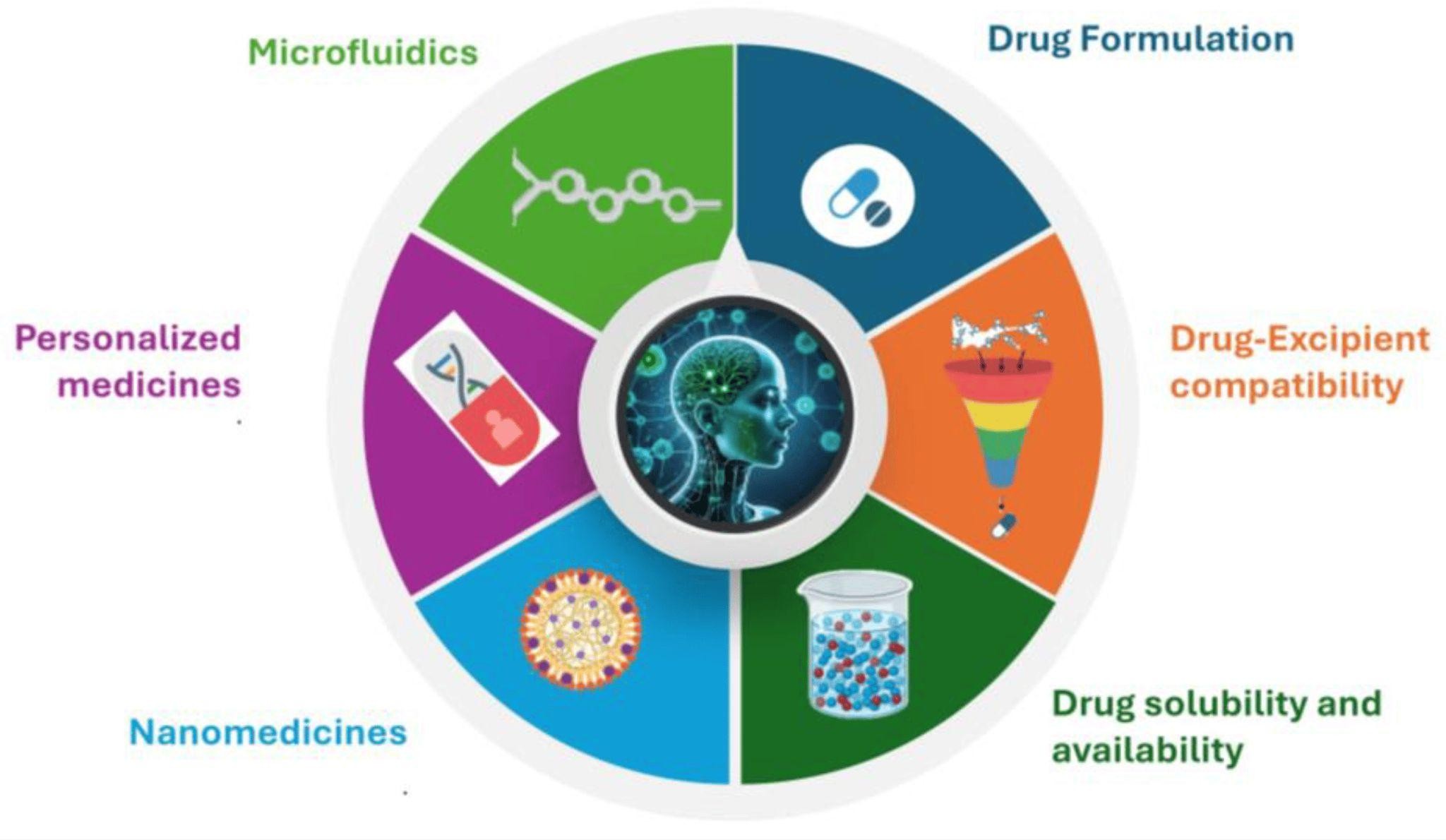
3. Key Areas of Study
A study on this topic might explore:
- AI Tools and Platforms: How Pfizer and Moderna are using AI platforms (e.g., deep learning, natural language processing) to analyze data and make decisions.
- Case Studies: Specific examples of AI-driven drug discovery, such as the rapid development of COVID-19 vaccines and treatments.
- Challenges: Limitations of AI in drug discovery, such as data quality, ethical concerns, and regulatory hurdles.
- Future Implications: How AI could further transform the pharmaceutical industry, including personalized medicine and faster development of treatments for rare diseases.
4. Why This Matters
- Faster Drug Development: AI can significantly reduce the time and cost of bringing new drugs to market, which is especially critical during pandemics like COVID-19.
- Improved Precision: AI enables more targeted and effective therapies, reducing side effects and improving patient outcomes.
- Competitive Advantage: Companies like Pfizer and Moderna that embrace AI are likely to lead the pharmaceutical industry in innovation and efficiency.
5. AI Tools and Platforms
AI tools such as IBM Watson, Google DeepMind, and Insilico Medicine are being used to analyze complex datasets and generate insights. For example, Google DeepMind’s AlphaFold has revolutionized protein structure prediction, enabling researchers to design drugs with greater precision.
The integration of AI into these stages has significantly reduced the time and cost of drug discovery. For example, AI-driven platforms can screen millions of compounds in silico (via computer simulations) in a matter of days, a process that would take years using traditional methods.
* Pfizer’s Use of AI in Clinical Trials
Pfizer has been at the forefront of adopting AI to enhance its clinical trial processes.
Clinical trials are a critical phase of drug development, but they are often plagued by inefficiencies, such as delays in patient recruitment and high dropout rates. Pfizer has leveraged AI to address these challenges in the following ways:
- Patient Recruitment: AI algorithms analyze electronic health records (EHRs) and other data sources to identify eligible patients for clinical trials. This approach has significantly reduced recruitment times and improved patient diversity.
- Trial Design: AI models simulate various trial designs to optimize protocols, ensuring that trials are both efficient and scientifically rigorous.
- Data Analysis: AI tools, such as NLP, extract insights from unstructured clinical data, such as physician notes and patient diaries. This enables researchers to identify trends and correlations that may not be apparent through traditional analysis.
A notable example of Pfizer’s use of AI is its collaboration with IBM Watson Health to analyze data from clinical trials for cancer drugs. By leveraging AI, Pfizer was able to identify biomarkers that predict patient responses to treatment, enabling more personalized and effective therapies.
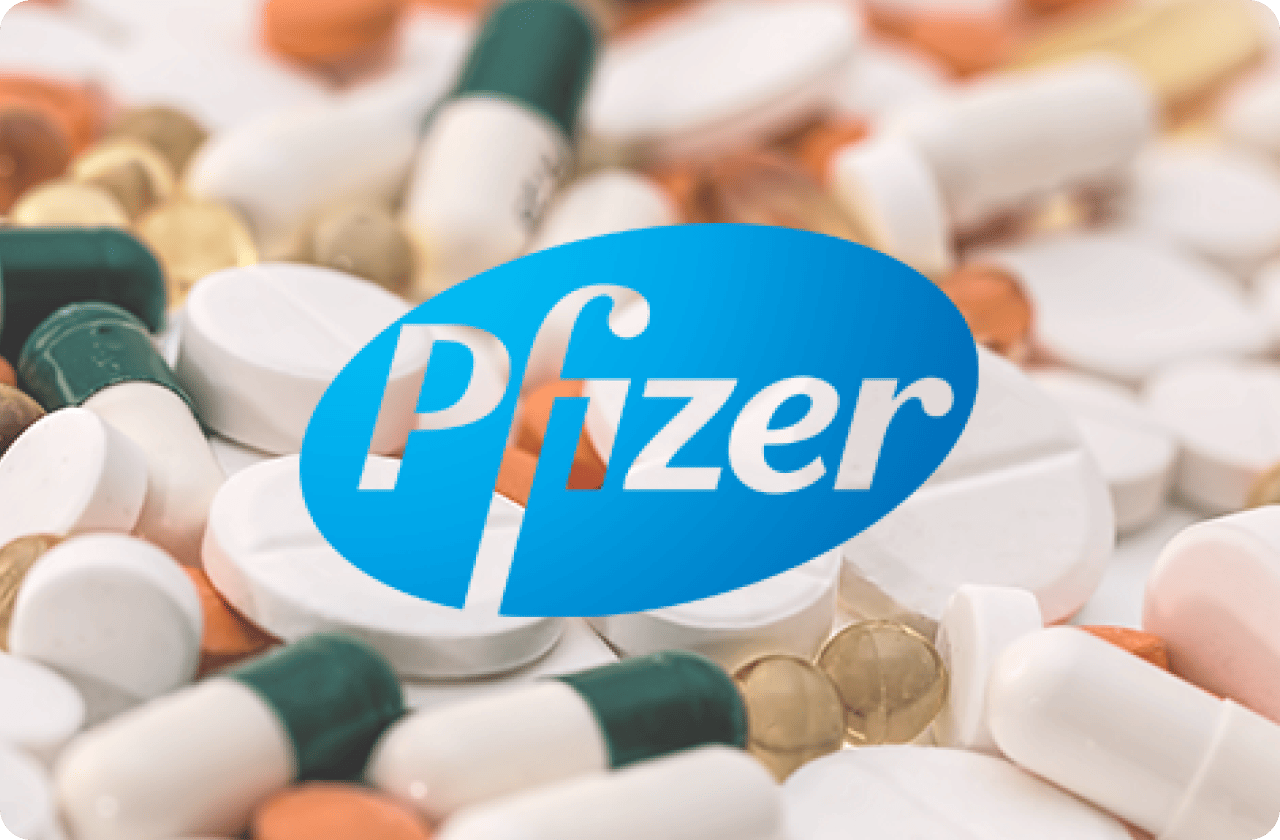
* Moderna’s AI-Powered mRNA Modeling
Moderna has revolutionized vaccine development through its use of AI in mRNA modeling. mRNA vaccines, such as those developed for COVID-19, rely on the design of synthetic mRNA sequences that instruct cells to produce specific proteins, triggering animmune response. Moderna has employed AI to optimize this process in the following ways:
- Sequence Design: AI models predict the most stable and effective mRNA sequences, reducing the need for trial-and-error experimentation.
- Delivery Optimization: AI algorithms optimize the lipid nanoparticles used to deliver mRNA into cells, ensuring efficient and targeted delivery.
- Manufacturing: AI streamlines the production process by predicting potential bottlenecks and optimizing resource allocation.
Moderna’s use of AI was instrumental in the rapid development of its COVID-19 vaccine, which was brought to market in less than a year—a process that typically takes a decade or more. By leveraging AI, Moderna was able to design and test multiple mRNA constructs in parallel, significantly accelerating the development timeline.
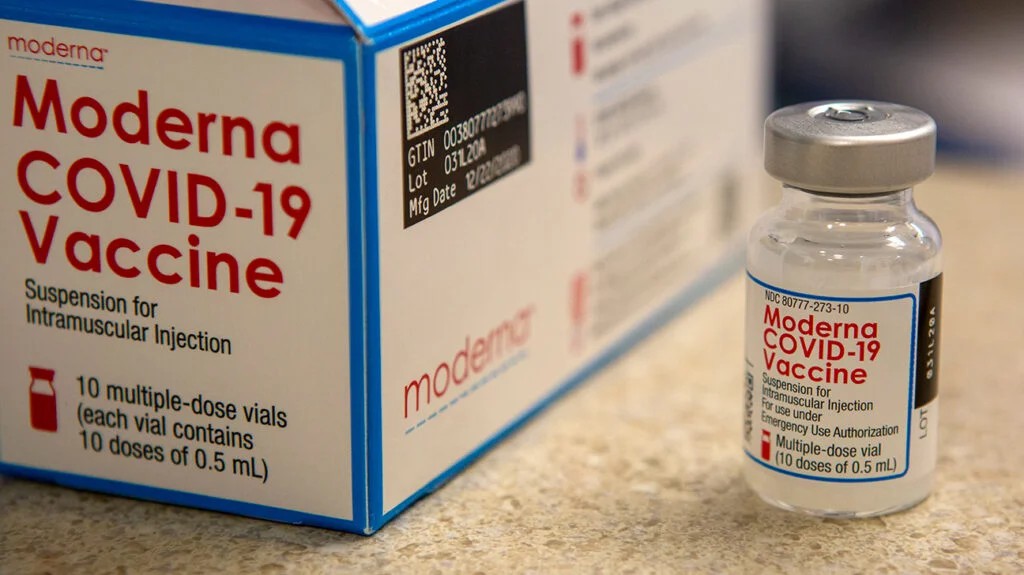
* Comparative Analysis: Pfizer vs. Moderna
The integration of Artificial Intelligence (AI) into drug discovery has been a game-changer for the pharmaceutical industry. Both Pfizer and Moderna have embraced AI, but their approaches and applications differ significantly. This section provides a detailed comparison of how these two companies are leveraging AI to revolutionize drug discovery and development.
While both Pfizer and Moderna are leveraging AI to innovate drug discovery, their approaches differ significantly. Pfizer’s focus on AI-driven clinical trial analysis reflects its commitment to improving the efficiency and effectiveness of clinical research. In contrast, Moderna’s use of AI in mRNA modeling highlights its emphasis on cutting-edge biotechnology and rapid vaccine development.
1. Scope of AI Applications
Pfizer:
- Clinical Trials: Pfizer has focused heavily on using AI to optimize clinical
- trials. This includes patient recruitment, trial design, and data analysis. For example, Pfizer partnered with IBM Watson Health to use AI for analyzing clinical trial data, enabling faster and more efficient trials.
- Drug Repurposing: Pfizer has used AI to identify existing drugs that can be repurposed for new indications. A notable example is Paxlovid, an antiviral drug for COVID-19, which was developed rapidly using AI-driven insights.
- Predictive Modeling: AI models are used to predict drug efficacy, toxicity, and potential side effects, reducing the need for extensive laboratory testing.
Moderna:
- mRNA Technology: Moderna’s primary focus is on mRNA-based vaccines and therapeutics. AI is used extensively in designing mRNA sequences, optimizing delivery mechanisms, and improving manufacturing processes.
- Vaccine Development: Moderna’s COVID-19 vaccine is a prime example of how AI can accelerate vaccine development. AI was used to design the mRNA
- sequence and optimize the lipid nanoparticles used for delivery.
- Manufacturing Optimization: AI helps Moderna streamline its manufacturing processes, ensuring efficient production and scalability.
2. Technology Focus
Pfizer:
- Data Analytics and NLP: Pfizer relies heavily on data analytics and natural
- language processing (NLP) to analyze large datasets, such as electronic health records (EHRs) and clinical trial data.
- Collaborations: Pfizer has partnered with AI-driven companies like IBM Watson, Insilico Medicine, and Tempus to enhance its AI capabilities.
Moderna:
- Machine Learning for Molecular Design: Moderna uses advanced machine learning models to design and optimize mRNA sequences. This includes predicting the stability and efficacy of mRNA constructs.
- AI in Manufacturing: Moderna employs AI to optimize its manufacturing processes, ensuring efficient production and scalability.
3. Impact and Achievements
- Pfizer:
- Paxlovid: Pfizer’s use of AI in developing Paxlovid, an antiviral drug for COVID-19, is a testament to the power of AI in drug discovery. The drug was developed and approved in record time, thanks to AI-driven insights.
- Clinical Trial Efficiency: AI has significantly improved the efficiency of Pfizer’s clinical trials, reducing costs and timelines.
Moderna:
- COVID-19 Vaccine: Moderna’s COVID-19 vaccine is a landmark achievement in the use of AI for vaccine development. The vaccine was developed in less than a year, a process that typically takes a decade or more.
- mRNA Platform: Moderna’s AI-driven mRNA platform has the potential to revolutionize vaccine development for other diseases, including cancer and rare genetic disorders.
4. Challenges and Limitations
Pfizer:
- Data Privacy: The use of patient data for AI analysis raises concerns about privacy and confidentiality.
- Regulatory Hurdles: Regulatory frameworks have not kept pace with AI innovations, creating uncertainty for Pfizer and other pharmaceutical companies.
Moderna:
- AI Model Reliability: Moderna’s reliance on AI for mRNA design and optimization requires highly accurate and reliable models. Any errors in the AI models could have significant consequences.
- Scalability: While AI has enabled rapid development, scaling up production for global distribution remains a challenge.
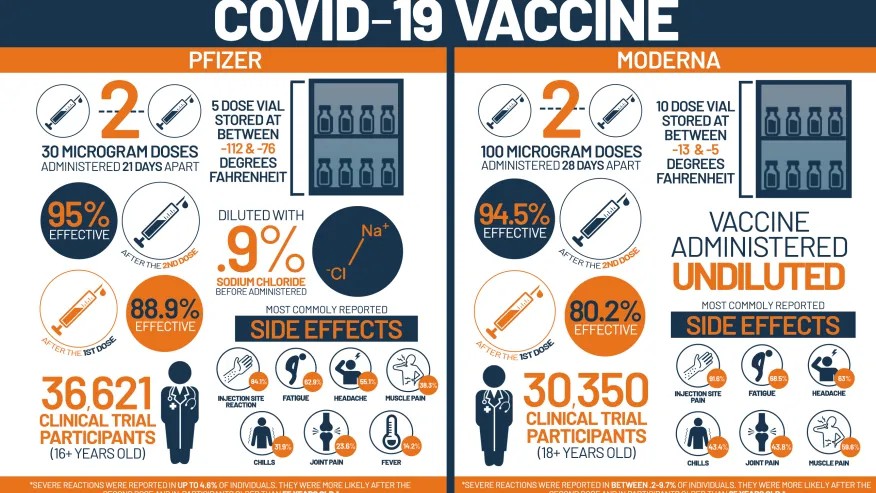
5. Future Prospects
Pfizer:
- Personalized Medicine: Pfizer is exploring the use of AI to develop personalized therapies tailored to individual patients.
- Expanding AI Applications: Pfizer plans to expand its use of AI to other areas, such as drug repurposing and predictive modeling.
Moderna:
- Beyond COVID-19: Moderna is leveraging its AI-driven mRNA platform to develop vaccines and therapeutics for other diseases, including cancer, HIV, and rare genetic disorders.
- Global Reach: Moderna aims to use AI to optimize its manufacturing processes, ensuring efficient production and global distribution of its vaccines.
6. Key Takeaways
|
Aspect |
Pfizer | Moderna |
|
Primary Focus |
Clinical trials, drug repurposing | mRNA technology, vaccine development |
|
AI Tools |
Data analytics, NLP |
Machine learning, molecular design |
|
Key Achievements |
Paxlovid, clinical trial optimization |
COVID-19 vaccine, mRNA platform |
|
Challenges |
Data privacy, regulatory hurdles |
AI model reliability, scalability |
| Future Prospects | Personalized medicine, expanded AI applications | Vaccines for other diseases, global distribution |
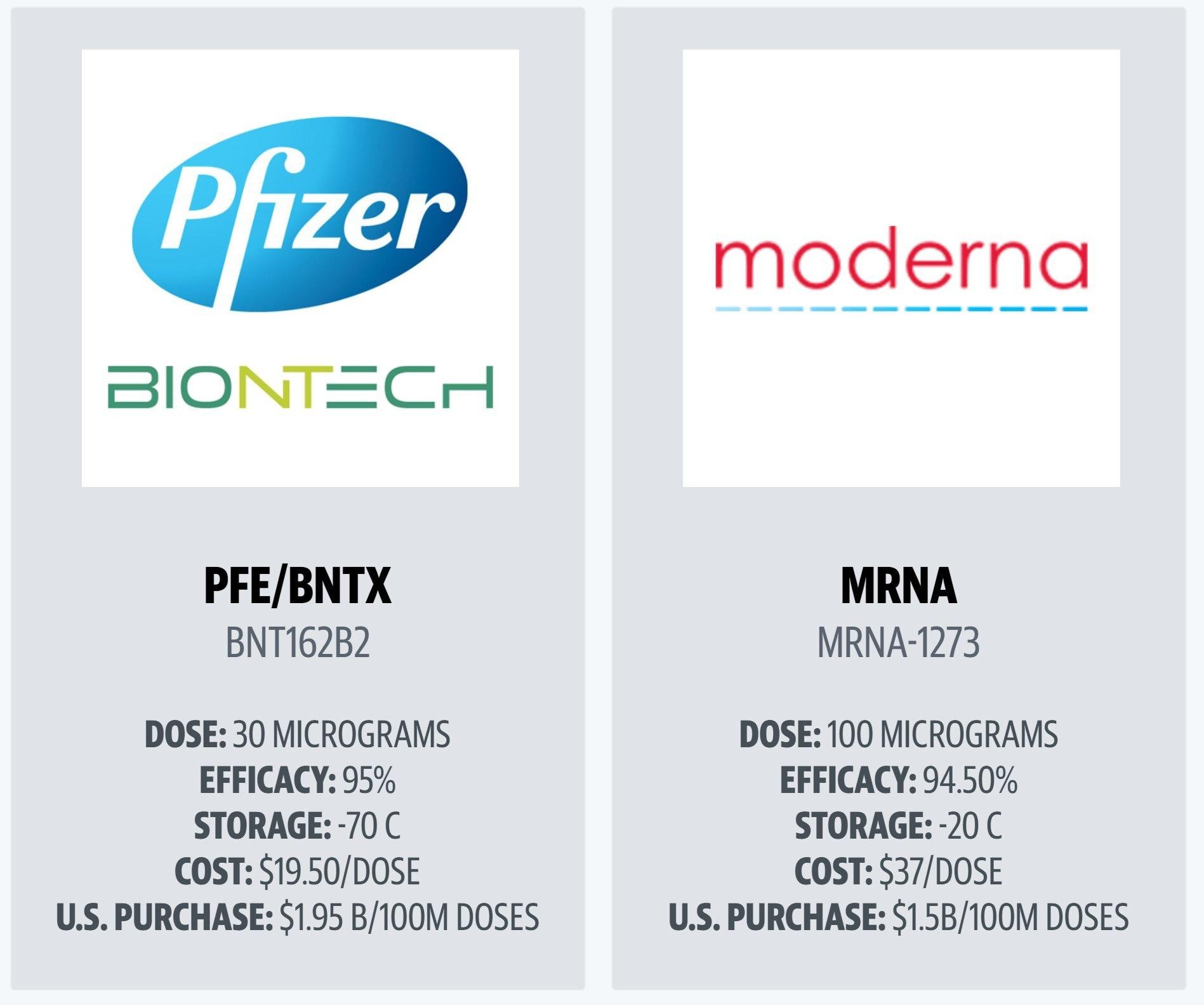
* Challenges in AI-Driven Drug Discovery :
Despite its potential, the adoption of AI in drug discovery is not without challenges.
These include:
- Data Privacy: The use of patient data for AI analysis raises concerns about privacy and confidentiality. Robust data protection measures are essential to address these concerns.
- Regulatory Approval: Regulatory frameworks have not kept pace with AI innovations, creating uncertainty for pharmaceutical companies. Clear guidelines are needed to ensure compliance and safety.
- AI Model Reliability: AI models are only as good as the data they are trained on. Biases in training data can lead to inaccurate predictions, highlighting the need for rigorous validation and testing.
Mini-Project Proposal: Predicting Drug Effectiveness Using AI To provide students with hands-on experience in AI-driven drug discovery, the following mini-project is proposed:
Objective: Predict drug effectiveness using a publicly available medical dataset.
Tools: Python, Scikit-learn, TensorFlow, or PyTorch.
Dataset: Utilize datasets like the Drug Discovery Dataset from Kaggle.
Steps:
- Data Preprocessing: Clean and normalize the dataset to ensure consistency and accuracy.
- Model Training: Train a machine learning model (e.g., random forest, neural network) to predict drug efficacy based on molecular features.
- Model Evaluation: Evaluate the model’s performance using metrics such as accuracy, precision, recall, and F1 score.
- Interpretation: Analyze the results to identify key factors influencing drug effectiveness and suggest improvements to the model.
This project will provide students with practical skills in data analysis, machine learning, and drug discovery, preparing them for careers in the rapidly evolving pharmaceutical industry.
Discussion :
AI is revolutionizing drug discovery by enabling faster, more accurate research.
Pfizer’s use of AI in clinical trials and Moderna’s mRNA modeling exemplify the diverse applications of AI in the pharmaceutical industry. However, challenges such as data privacy, regulatory approval, and model reliability must be addressed to fully realize AI’s potential.
The proposed mini-project offers a hands-on opportunity for students to explore AI’s role in drug discovery, fostering innovation and practical skills. As AI continues to evolve, its integration into drug discovery will undoubtedly lead to groundbreaking advancements, improving patient outcomes and transforming the pharmaceutical landscape.
Conclusion :
Both Pfizer and Moderna have demonstrated the transformative potential of AI in drug discovery and development. While Pfizer has focused on optimizing clinical trials and drug repurposing, Moderna has pioneered the use of AI in mRNA technology and vaccine development. Despite their different approaches, both companies have achieved remarkable success, particularly in the rapid development of COVID-19 treatments and vaccines.
However, challenges such as data privacy, regulatory hurdles, and AI model reliability must be addressed to fully realize the potential of AI in the pharmaceutical industry. As AI continues to evolve, its integration into drug discovery will undoubtedly lead to groundbreaking advancements, improving patient outcomes and transforming the pharmaceutical landscape.
References :
- Topol, E. J. (2019). High-performance medicine: the convergence of human and artificial intelligence. *Nature Medicine, 25*(1), 44-56.
- Mak, K. K., & Pichika, M. R. (2019). Artificial intelligence in drug development: present status and future prospects. *Drug Discovery Today, 24*(3), 773-780.
- Pfizer. (2021). Leveraging AI in Clinical Trials. Retrieved from [Pfizer’s official website].
- Moderna. (2021). AI in mRNA Vaccine Development. Retrieved from [Moderna’s official website].
- Kaggle. (2023). Drug Discovery Dataset. Retrieved from [Kaggle’s official website].
- Jumper, J., et al. (2021). Highly accurate protein structure prediction with AlphaFold.
*Nature, 596*(7873), 583-589.
- Paul, D., et al. (2021). Artificial intelligence in drug discovery and development. *Drug Discovery Today, 26*(1), 80-93.










